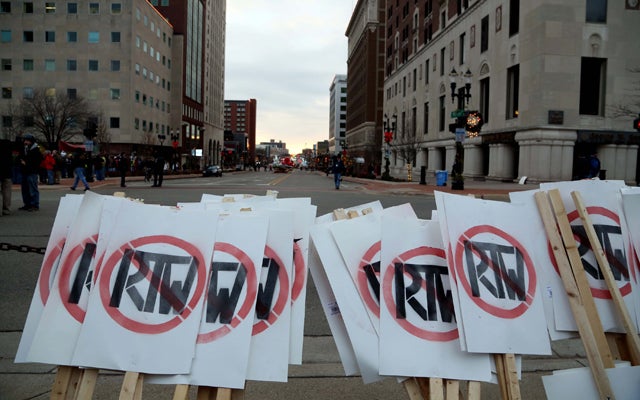Right-to-work laws represent “the freedom to freeload,” conservative commentator Steven Crowder was told by a union protester outside the Michigan state capitol shortly before another protester punched him in the face.
The gripe is a common one: If workers are free to choose whether or not they wish to join a union, Big Labor claims, they can still enjoy the benefits of collective bargaining without footing the bill.
The problem with that complaint: It’s simply untrue. Under the National Labor Relations Act, unions are free to represent all employees – not just union members – at the bargaining table. But they are not required to do so.
“The National Labor Relations Act does not mandate unions exclusively represent all employees, but permits them to electively do so,” explained Heritage’s James Sherk in a Monday column. “Under the Act, unions can also negotiate ‘members-only’ contracts that only cover dues-paying members. They do not have to represent other employees.”
Moreover, the free-rider argument implies that workers’ union dues would go at least predominately toward activities that achieve better compensation or other workplace benefits. But neither is that the case.
In fact, less than a quarter (24.1 percent) of expenditures by Michigan’s 25 largest private sector (or public/private hybrid) union locals go toward actually representing workers, according to those unions’ latest LM-2 filings (obtained via the Labor Department’s website – see spreadsheet below for a more detailed breakdown). The rest goes toward other expenditures, including benefits, political activity, and general overhead.





























